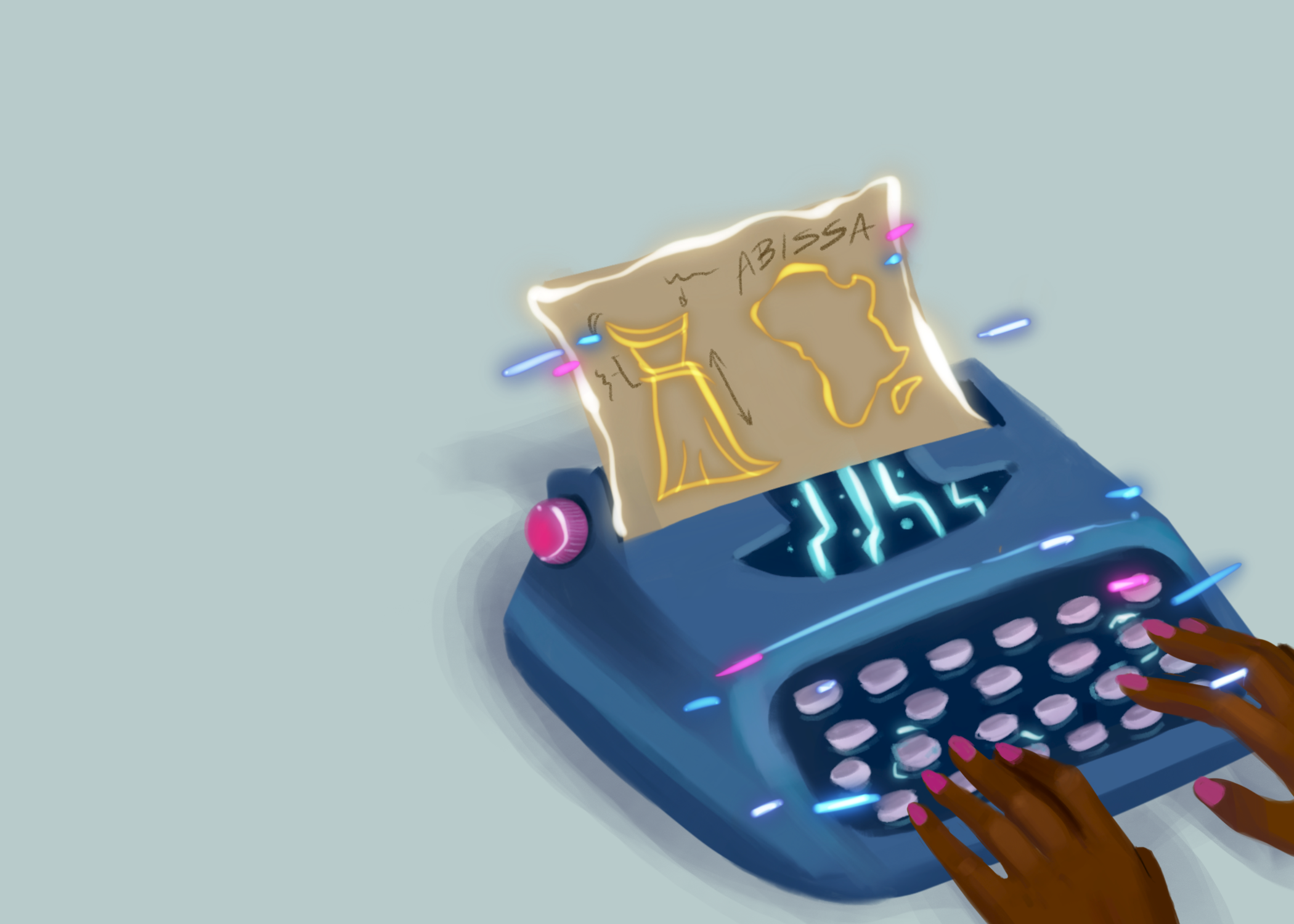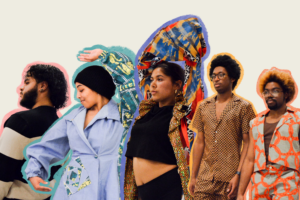On April 11, the African Society of Georgetown’s (ASG) 13th annual spring showcase, ABISSA, will fill Gaston Hall with dance, modeling, and romance. This year’s original play-meets-fashion-show performance is Fate of the Forbidden, inspired by Shakespeare’s Romeo and Juliet.
Fate of the Forbidden, written by a group of ASG students, follows West African Romeoluwa and East African Julietu as they fall deeply into a forbidden love. The cultural and ethnic divide between the two prohibits them from any interaction. Drawn to one another, Romeoluwa and Julietu push back against authority figures and social norms in their fight to be together. Although it is based in Africa, the story does not reflect contemporary social divides, according to ASG Co-President Winifred Asigri (CAS ’25).
“Ethnic divides have less of an impact on things like marriage nowadays,” Asigri said. “I think also as people are becoming more educated about colonization and understanding that a lot of the African country borders are man-made in a very European sense; it doesn’t really hold as much precedence as it would in the past.”
In contrast to past years, ASG opted out of hiring an outside playwright for Fate of the Forbidden. Instead, the ASG board brainstormed and wrote the script themselves. The process started in September with only a “concept and a dream,” Asigri said. Five board members met weekly over the fall semester to create the outline and during winter break, Sophomore Representative Kemka Ihemelandu (CAS ’26) began turning it into a script that underwent numerous revisions in the following months.
“We decided we’re not gonna hire anybody from outside the university anymore. We’re gonna write our own play. It’s gonna be completely, entirely made by us,” Asigri said. “That’s one of the things I’m most proud of this year.”
In between scenes of the play, Georgetown students will walk the runway, modeling over 80 Afrofuturistic outfits from African clothing designers.
“The clothes will have some element of futurism, whether it’s something flashy, something bright, something colored,” ASG’s Vice President Frederick Mwansa (MSB/SFS ’26) said. “Every model’s a different art piece of the sort, and we try to make sure that they have the confidence to display the clothes…[and] feel as at-home onstage as possible.”
Pulling from both local and overseas sources, the search for designers started early in the fall semester, as ASG wanted to incorporate more East African clothing.
“[A lot of] the designers that we have available to us… are from West Africa—either Ghana, Nigeria, or just somewhere in a western country,” Asrigi said. “We wanted to make sure we were incorporating a lot of Habisha clothing, Somali clothing… and then doing separate model walks for East and West.”
According to Asigri, the overarching theme of 2025’s ABISSA is unity—emphasizing the strength and beauty of the differences across African cultural and ethnic groups.
“[ABISSA is] about thinking less about what makes us different and more so about… the beauty of the culture of the continent,” Asigiri said. “Even with our differences, I think that it’s really necessary that we come together and are able to form dialogue… looking past colonial divides, man-made lines, or man-made social constructs.”
This theme was inspired partially by ASG’s community, which provides space for African students of distinct backgrounds to exchange cultural traditions, freshman representative Musinga Mbuvi (SOH ’28) said.
“I appreciate [ASG] because there are things that we can talk about and appreciate about each other’s cultures,” Mbuvi said. “Even though, culturally, we’re from a lot of different places—like a lot of East Africans and West Africans—at the same time, it’s like, we have a lot of foods that we just call different names.”
True to their message of unity, ASG has made an increased effort to advertise the play in an accessible manner, reinforcing the idea that the performance is open to everyone, regardless of race, heritage, or ethnicity. In the past, they’ve had difficulties reaching audiences beyond the Black community of students and staff, according to Mwansa.
“It can be hard to break the glass of this being perceived as an ‘Africa-only’ event. Of course, the concept is, but the art is meant to be consumed by everyone on campus and beyond,” Mwansa said.
With the play in Gaston Hall for the first time, they’re hoping to reach a larger audience, not only in size, but also in demographic.
“[African culture] may be different from the cultures that a large part of the student body at Georgetown have experienced, but not different in an intimidating way—an attractive, enticing way,” Mbuvi said.
While creating and advertising ABISSA, the board curated every detail with intentionality, from the style of clothing to the fonts used on the play’s poster. The poster features the silhouettes of Romeoluwa and Julietu on the foreground of a futuristic city of silver metal buildings, completed with Fate of the Forbidden written in large yellow and black letters.
“We arrived on futurism because it’s digestible. The concept’s already been introduced to everyone before,” Mbuvi said. “When making the poster, we made it very intentional to have equal focus on highlighting Africa and also the futuristic aspects…. That includes fonts, background, but also foreground and background characters.”
Even beyond ABISSA, ASG aims to advertise their club and its events as open and welcoming to every student on campus.
“We always try to make it as clear as possible [that] our events are literally for everyone,” Asigri said. “We want you to come and learn about our culture and become immersed in it.”
To be transported into a whirlwind world of romance and futurism, come see Fate of the Forbidden in Gaston Hall on Friday April 11. Tickets are on sale now.





